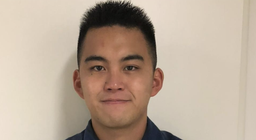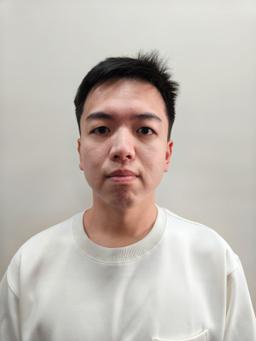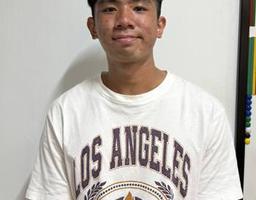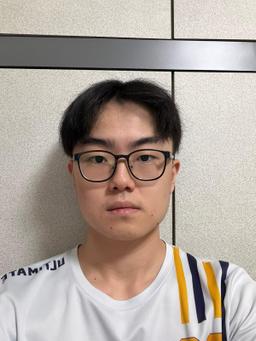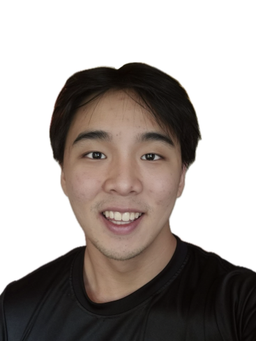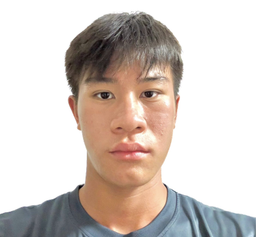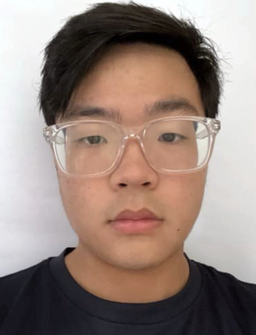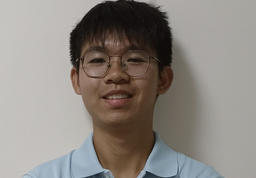O-Levels Done, What's Next? A Parent's Guide to JC vs. Poly Decisions
- Understand the real differences between JC and Poly pathways
- Make an informed decision based on your child's learning style
- Discover how O-Level grades still impact future opportunities
The Big Decision That Shapes Your Child's Future
Congratulations! Your child has crossed the O-Level finish line. But before you can fully celebrate, another significant question emerges: should they head to Junior College (JC) or Polytechnic (Poly)? This decision about what comes after O-Levels done, what's next? A parent's guide to JC vs. Poly becomes crucial for every Singapore family.
After working with over 350 families through this exact crossroads, I've seen the anxiety this choice creates. Parents worry about making the "wrong" decision, while students feel overwhelmed by the pressure to choose their entire future at 16.

Here's what I've learned: there's no universally "better" option. The question isn't which path is superior, but which one aligns with your child's learning style, interests, and future aspirations. According to MOE's latest education statistics, approximately 60% of O-Level students proceed to JC, while 40% choose polytechnic routes - both leading to successful careers.
Understanding Your Options: JC vs. Poly at a Glance
Before diving deeper, let's establish the fundamental differences between these pathways. This comparison will help you understand what each option truly offers:

Junior College (JC) - The Academic Sprint
- Duration: 2 intensive years
- Qualification: GCE 'A' Level certificate
- Pace: Fast and intense preparation
- Learning Style: Academic, theoretical, exam-focused
- Curriculum: Broad-based (typically 3 H2 subjects, 1 H1 subject)
- Assessment: One major final examination (A-Levels)
- Primary Goal: Direct university preparation
- Student Experience: Structured environment similar to secondary school
Polytechnic (Poly) - The Practical Journey
- Duration: 3 comprehensive years
- Qualification: Specialized diploma in chosen field
- Pace: Steady, in-depth exploration
- Learning Style: Applied, hands-on, project-based
- Curriculum: Industry-focused specialization
- Assessment: Continuous assessment through projects and presentations
- Primary Goal: Workforce preparation with strong university pathway
- Student Experience: University-like environment with flexible scheduling
The choice fundamentally comes down to how your child learns best and their career clarity at this stage.
The Junior College Journey: Academic Excellence Through Intensity
Junior College represents Singapore's traditional academic pathway - a concentrated two-year program designed specifically for A-Level preparation. Think of it as an academic bootcamp that transforms O-Level graduates into university-ready scholars.
The JC Learning Environment
The JC experience is characterized by its relentless pace and academic rigor. Students dive deep into theoretical concepts across Mathematics, Sciences, and Humanities. The learning environment demands strong "book learning" abilities - students who can absorb complex theoretical material, synthesize information quickly, and perform under high-stakes examination pressure.
What makes JC particularly challenging is the compressed timeline. Students must master university-level content in just two years, culminating in the A-Level examinations that determine their entire academic future. This intensity suits students who thrive under pressure and prefer clear, structured learning pathways.
Who Thrives in Junior College?
After observing hundreds of students navigate the JC system, certain characteristics consistently predict success:
Academic Strengths: Students who consistently performed well in theoretical subjects during secondary school typically adapt well to JC's academic demands. Strong foundation in Mathematics and Sciences becomes crucial for subject combinations.
Career Flexibility: JC works exceptionally well for students who aren't yet certain about their career direction. The broad-based curriculum keeps multiple university pathways open, allowing students to discover their interests during the two years.
Traditional Career Aspirations: Students aiming for Medicine, Law, Dentistry, or other traditional professions often find JC the more established route. While alternative pathways exist, the A-Level route remains the most straightforward for these competitive courses.
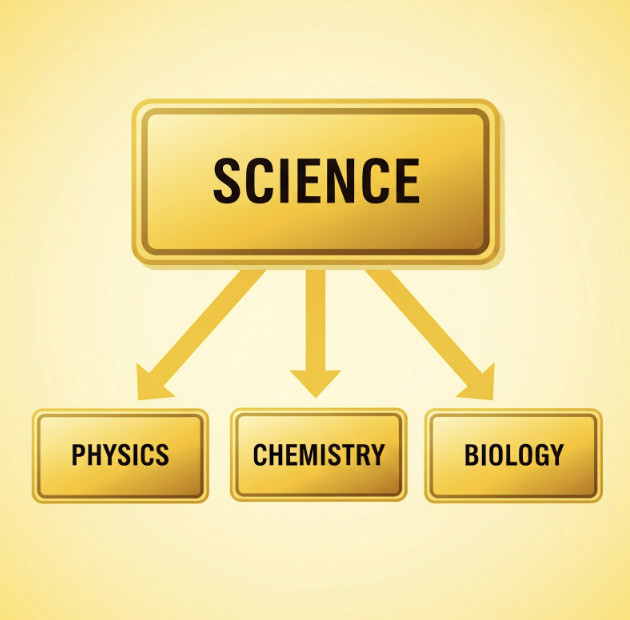
The University Pathway from JC
Understanding how JC students transition to university is crucial for making this decision. The Singapore Examinations and Assessment Board (SEAB) has recently updated the A-Level scoring system, creating important implications for university admission.
Under the current system, students can achieve a maximum of 70 Rank Points (RP), calculated primarily from three H2 subjects and General Paper. The fourth H1 subject or Mother Tongue only contributes if it improves the overall score. This change means strategic subject selection becomes even more critical.
Statistically, approximately 75-80% of JC graduates secure places in local universities. However, this success comes with a significant caveat: an A-Level certificate alone has limited market value. The JC pathway implicitly requires completing a university degree to maximize career prospects.
💡 Pro Tip: If your child chooses JC, ensure they understand that university becomes almost essential. Plan financially and academically for at least six years of post-secondary education.
The Polytechnic Adventure: Learning Through Doing
Polytechnic education represents Singapore's answer to practical, industry-relevant learning. Rather than preparing students for another examination, polytechnics focus on developing job-ready skills while maintaining strong university pathways.
The Poly Learning Experience
Polytechnic education revolves around hands-on learning experiences. Students engage in laboratory work, industry projects, internships, and real-world problem-solving from day one. The assessment system emphasizes continuous evaluation through presentations, group projects, and practical demonstrations rather than high-stakes final examinations.
This approach requires different skills from JC. Students need strong self-discipline and time management abilities, as the flexible schedule and project-based deadlines demand personal responsibility. The learning environment mirrors university life more closely, with no uniforms and greater personal freedom.
Who Flourishes in Polytechnic?
Successful polytechnic students typically share several characteristics:
Practical Learning Preference: Students who learn best through hands-on experiences, experiments, and real-world applications often find polytechnic more engaging than traditional academic approaches.
Clear Interest Areas: Polytechnic works exceptionally well for students who have identified specific fields of interest. Whether it's engineering, biotechnology, business, or creative arts, having some career direction helps students choose relevant diploma programs.
Self-Management Skills: The flexible polytechnic environment rewards students who can manage their time effectively, meet project deadlines, and take initiative in their learning journey.

University Pathways from Polytechnic
Many parents worry that choosing polytechnic closes university doors. This concern is understandable but largely unfounded. However, the pathway does require strategic planning and strong academic performance.
Polytechnic graduates gain university admission based on their Grade Point Average (GPA). The competition is more intense than the JC route, with approximately one in three polytechnic graduates securing local university places. Students typically need GPAs of 3.8 or higher to compete effectively for popular courses like Computer Science, Engineering, or Business.
The polytechnic advantage lies in specialization and practical experience. Many polytechnic graduates receive module exemptions in university, potentially reducing their degree duration from four years to three or 3.5 years. This time saving, combined with their practical experience, often makes them attractive to employers.
📚 Key Insight: A relevant diploma provides immediate career opportunities. Polytechnic graduates can enter the workforce with median starting salaries around S$2,800, providing financial independence while others continue studying.
The Critical Role of O-Level Mathematics and Science
Here's where many families encounter an unpleasant surprise: strong O-Level results in Mathematics and Science remain crucial for both pathways. The myth that "good grades are for JC, polytechnic is the backup" has misled countless families.
Why Strong Grades Still Matter for JC-Bound Students
Subject prerequisites determine which A-Level combinations your child can pursue, directly impacting their university options:
Mathematics Requirements: Taking H2 Mathematics typically requires at least a B3 in Additional Mathematics. Without this grade, students may be restricted to H1 Mathematics, limiting their options for engineering, business, and science courses at university level.
Science Prerequisites: H2 Physics, Chemistry, or Biology require strong performance in the corresponding Pure Science subjects, or high grades (A1/A2) in Combined Science. Weak science grades force students into Arts streams, regardless of their interests or career goals.
These restrictions can derail university plans before students even begin JC. A student dreaming of engineering but lacking the mathematics prerequisite faces significant challenges in achieving their goals.
Why Polytechnic Also Demands Strong Foundations
Contrary to popular belief, the most sought-after polytechnic diploma courses have strict O-Level requirements:
Engineering Programs: Virtually all engineering diplomas require strong Mathematics and Science grades. These programs lead to high-growth, well-compensated careers but remain inaccessible to students with weak foundational grades.
Applied Sciences: Biotechnology, Chemical Engineering, and Health Sciences programs all demand solid science foundations. These emerging fields offer excellent career prospects but require strong academic preparation.
Information Technology: Modern IT programs, including cybersecurity and software development, require strong mathematical reasoning abilities. Poor O-Level Mathematics performance limits access to these high-demand fields.
Students with weak O-Level Mathematics and Science grades often find themselves restricted to less competitive diploma courses, limiting their career options and earning potential regardless of which pathway they choose.

💡 Pro Tip: If your child is still in secondary school, prioritizing Mathematics and Science excellence keeps all post-secondary doors open. Strong foundations provide choice; weak foundations limit options.
Making the Right Choice: Four Essential Questions
After working with hundreds of families through this decision, I've identified four questions that consistently reveal the right pathway for each student. Sit down with your child and explore these together:
Question 1: "How do you prefer to learn?"
This fundamental question cuts to the heart of the JC vs. polytechnic decision. Some students absorb information best through reading, listening to lectures, and demonstrating knowledge through examinations. Others need to build, experiment, and create to truly understand concepts.
Observe how your child approached their favorite secondary school subjects. Did they excel in theoretical topics like Mathematics and Physics through problem-solving and formula application? Or did they come alive during practical sessions, laboratory work, and project presentations?
Neither learning style is superior, but recognizing your child's natural preferences helps predict their success in each environment.
Question 2: "Do you have a specific career you're passionate about?"
Career clarity significantly influences the optimal pathway choice. Students with clear professional goals often benefit from polytechnic's specialized training and industry connections. A student passionate about biotechnology, for instance, can begin building relevant skills and networks immediately through a polytechnic diploma.
Conversely, students who remain uncertain about their career direction often benefit from JC's broad-based approach. The diverse subject combinations allow exploration of different fields while maintaining maximum university options.

Question 3: "Can you manage your own time effectively?"
This question reveals crucial information about your child's readiness for polytechnic's independent learning environment. Polytechnic students must juggle project deadlines, presentation schedules, and assignment requirements without the structured timetable of traditional schooling.
Students who consistently completed homework, managed multiple assignments, and met deadlines during secondary school typically adapt well to polytechnic's demands. Those who struggled with time management might benefit from JC's more structured environment.
Question 4: "What worries you more: one major exam or constant projects?"
This question uncovers your child's preferred assessment style and stress management approach. Some students prefer channeling their efforts toward one significant examination, finding motivation in the clear goal and defined timeline. Others feel overwhelmed by high-stakes testing and perform better with distributed assessment through projects and presentations.
Understanding your child's stress response and performance patterns helps predict their success in each system's assessment approach.
Beyond the Decision: Setting Up for Success
Regardless of which pathway your child chooses, certain principles maximize their chances of success in Singapore's competitive education landscape.
Building Strong Foundations Early
The most important insight from my decade of working with Singapore families is this: strong foundational skills in Mathematics and Science provide educational freedom. Students with solid foundations can choose their preferred pathway based on learning style and interests rather than grade limitations.
For families with children still in secondary school, investing in strong Mathematics and Science performance pays dividends for years to come. Whether your child ultimately chooses JC or polytechnic, excellence in these subjects opens doors to the best programs and opportunities.
Supporting Your Child's Journey
Once the pathway decision is made, your role as a parent evolves. JC students need support managing academic pressure and maintaining perspective during the intensive two-year sprint. Polytechnic students benefit from encouragement in developing self-discipline and celebrating their practical achievements.
Both pathways require understanding that success looks different in each system. JC success is measured through examination grades and university admission. Polytechnic success encompasses practical skills development, industry connections, and real-world problem-solving abilities.
The Reality Check: Both Paths Lead to Success
After guiding hundreds of students through both JC and polytechnic pathways, I can confidently state that both routes produce successful, fulfilled graduates. The key lies not in choosing the "better" option, but in selecting the path that aligns with your child's strengths, interests, and learning style.
I've seen JC graduates excel in traditional professions like medicine and law, while also pursuing innovative careers in technology and business. Similarly, polytechnic graduates have launched successful startups, advanced to senior management positions, and made significant contributions across industries.
The Singapore education system's strength lies in providing multiple pathways to success. Your child's character, work ethic, and adaptability matter far more than which post-secondary path they initially choose.
Taking Action: Your Next Steps
As you navigate this important decision with your child, remember that you don't have to figure it all out alone. Here's your immediate action plan:
For Current O-Level Students: Focus on finishing strong in Mathematics and Science to maximize future options. Use the four questions above to begin exploring your child's preferences and learning style.
For Secondary School Families: Prioritize building strong foundations in Mathematics and Science. These subjects provide the academic freedom to choose pathways based on interests rather than limitations.
For All Families: Remember that no decision is permanent. Singapore's education system allows for pathway changes, alternative routes, and second chances. What matters most is making the best decision with the information available today.
If you're feeling overwhelmed by these choices or concerned about your child's academic foundations, you're not alone. Every Singapore family faces these decisions, and professional guidance can provide clarity and confidence.
Our experience helping over 350 students navigate Singapore's education system has shown us that success comes from matching the right support to each child's unique needs. Whether your child needs stronger Mathematics and Science foundations for better pathway options, or targeted preparation for their chosen route, personalized guidance makes all the difference.
Contact our education specialists to discuss your child's specific situation and explore how we can support their journey toward academic excellence. You can also take advantage of our free diagnostic assessment to understand exactly where your child stands and what opportunities lie ahead.
For more insights into Singapore's education landscape and practical parenting strategies, explore our education blog or read what other families have experienced through our testimonials.
Remember: the best time to prepare for these crucial decisions is before you're forced to make them. Strong academic foundations provide choices, and choices provide freedom to pursue your child's dreams.
Tags:
📚 Related Reading
Polytechnic Open Houses 2026 (Jan 8-10): The Ultimate Guide for O-Level Grads
All 5 Singapore polytechnics are opening their doors Jan 8-10, 2026 - your only chance to experience campus life before JAE applications close. Here's your complete guide to making the most of these crucial three days and choosing the right path for your O-Level results.
Why Starting Tuition in January Beats Waiting Until June: A Singapore Parent's Guide
The 'wait and see' approach costs Singapore students dearly. After helping 350+ families navigate our education system, here's why January tuition starts lead to better outcomes than June panic decisions.
DSA 2026: Why P6 and Sec 3 Students Must Start Preparing in January
The DSA 2026 application window opens in May, but successful students start building their portfolios in January. Here's your strategic guide to creating compelling evidence of talent and achievement before the rush begins.
Need Help with Your Studies?
Get personalized tutoring from The Singapore Syllabus expert team. Our experienced tutors are here to help your child excel in mathematics and science.

